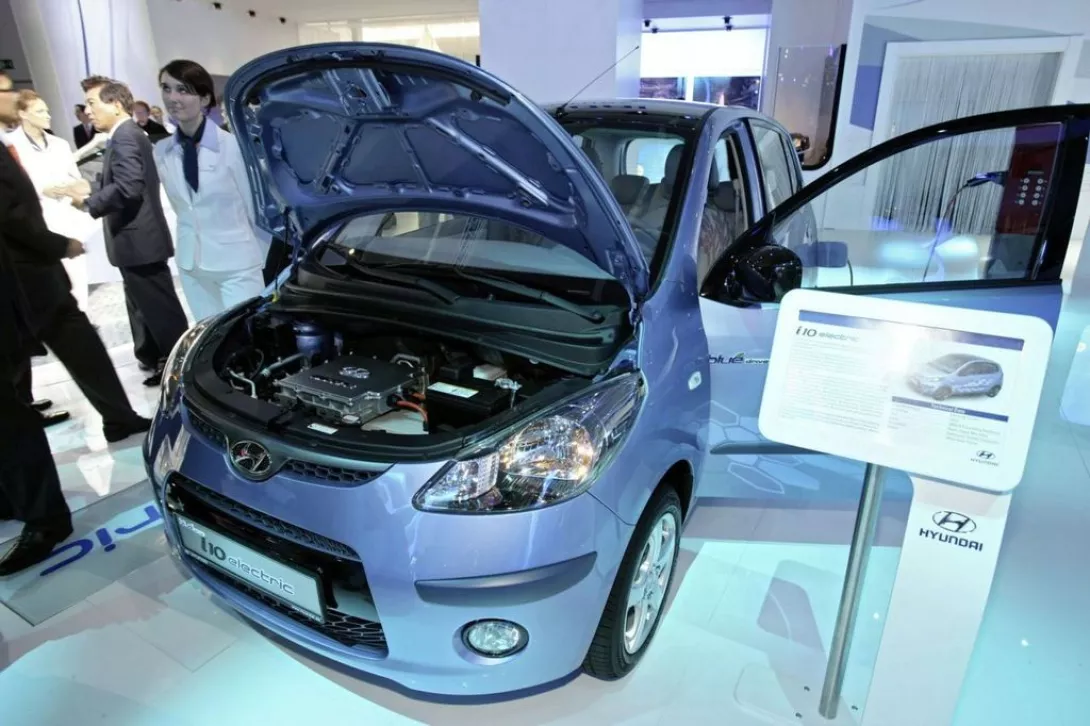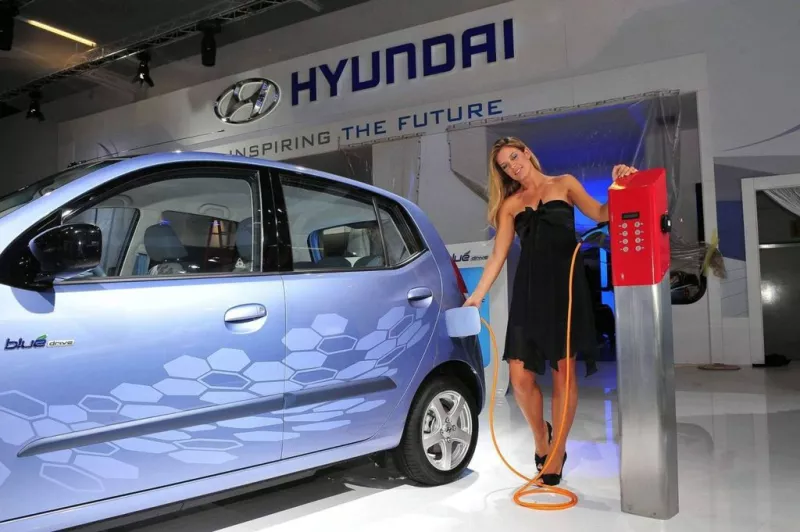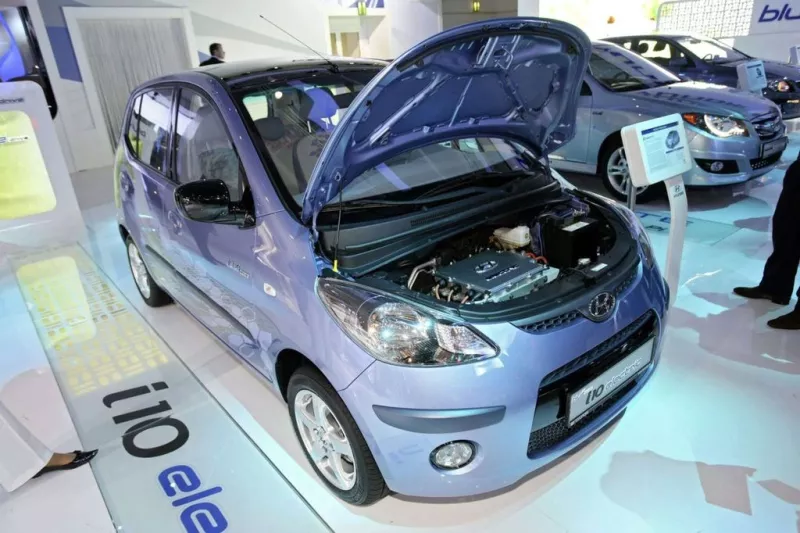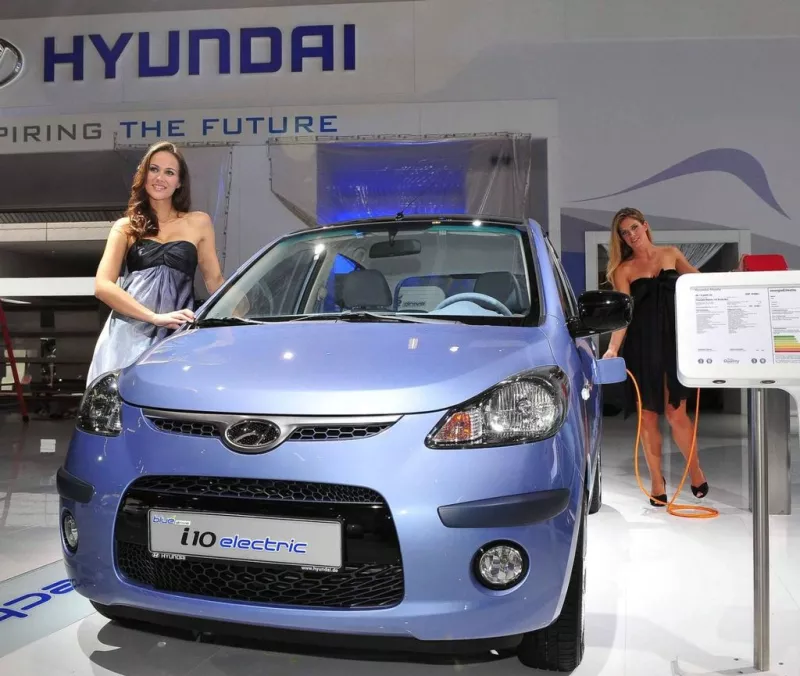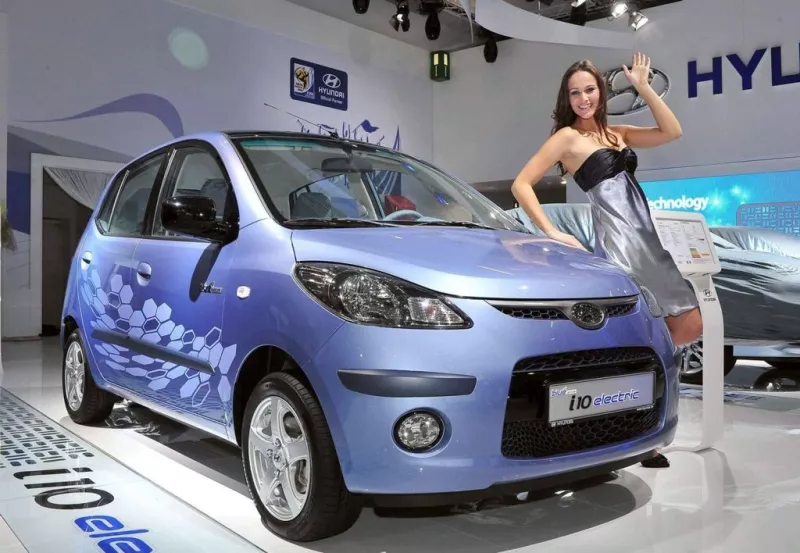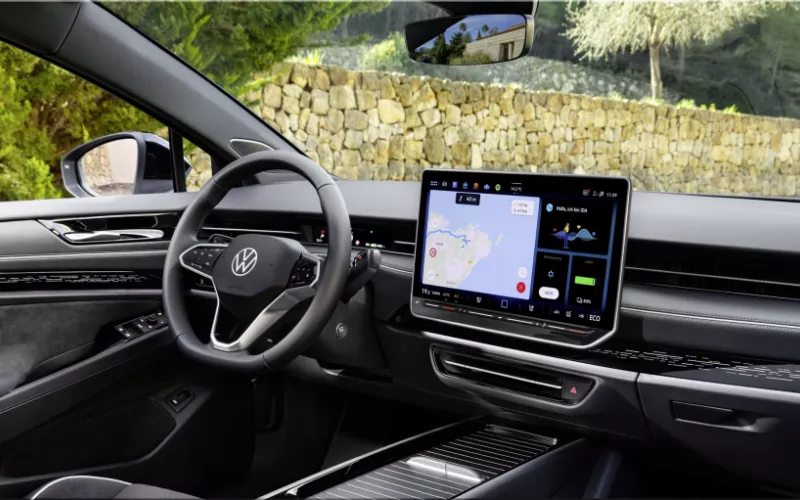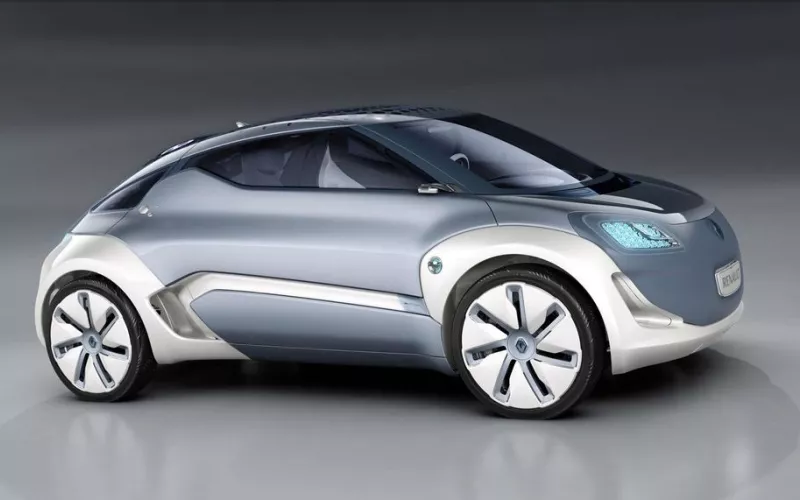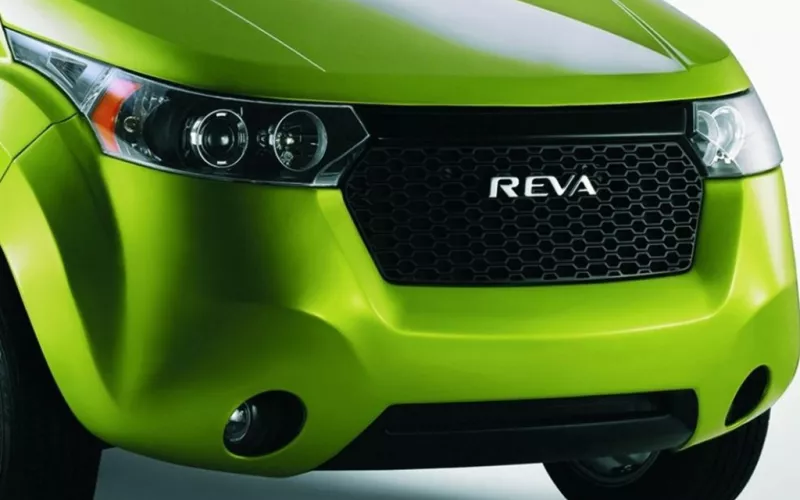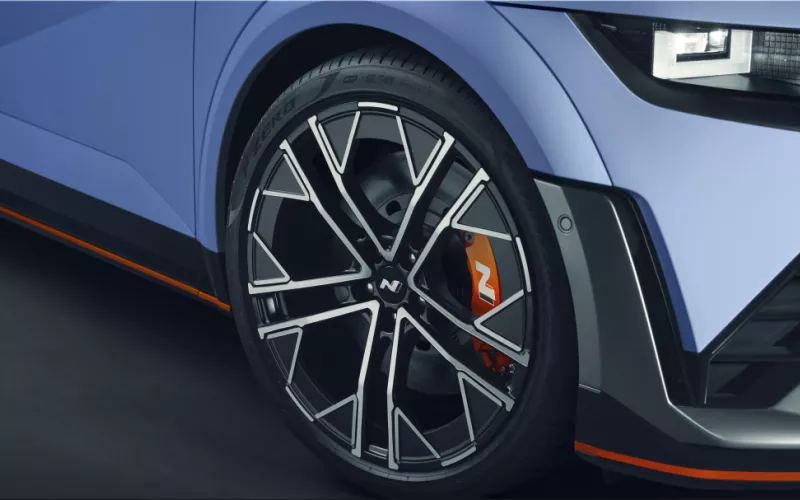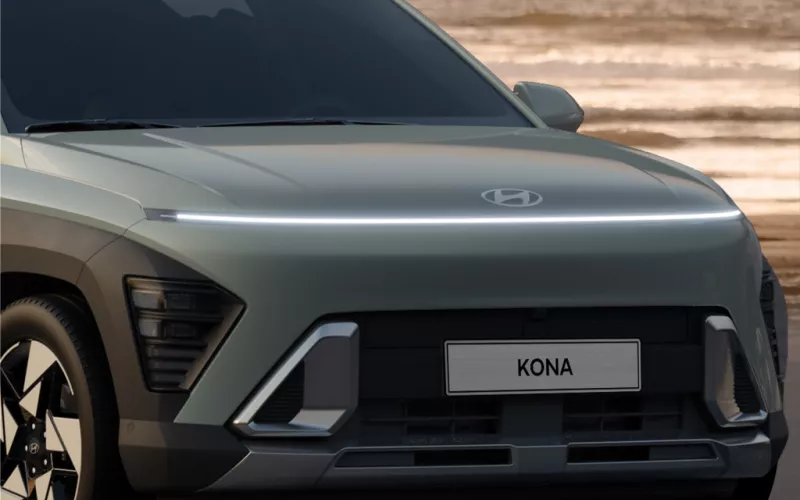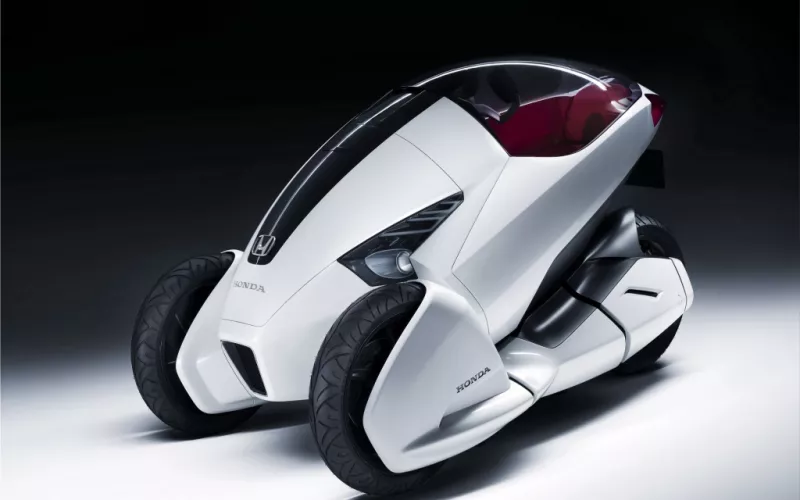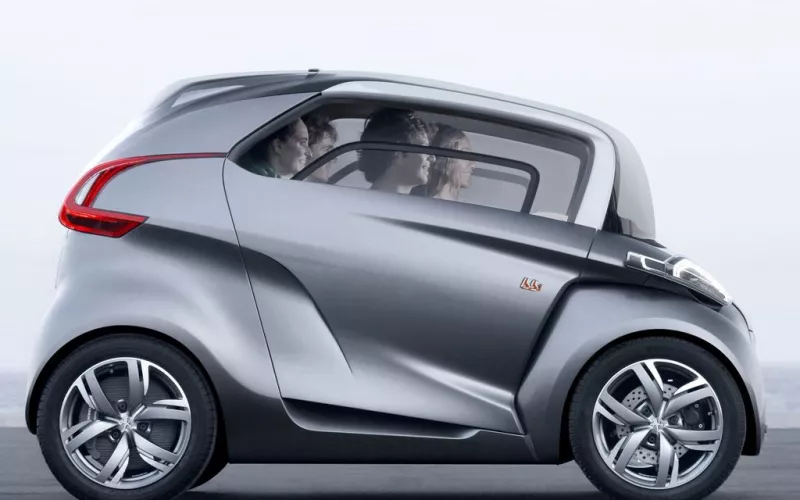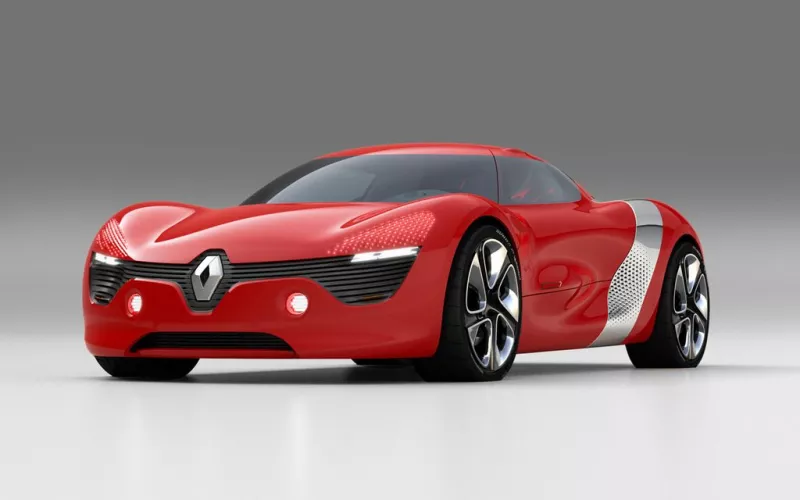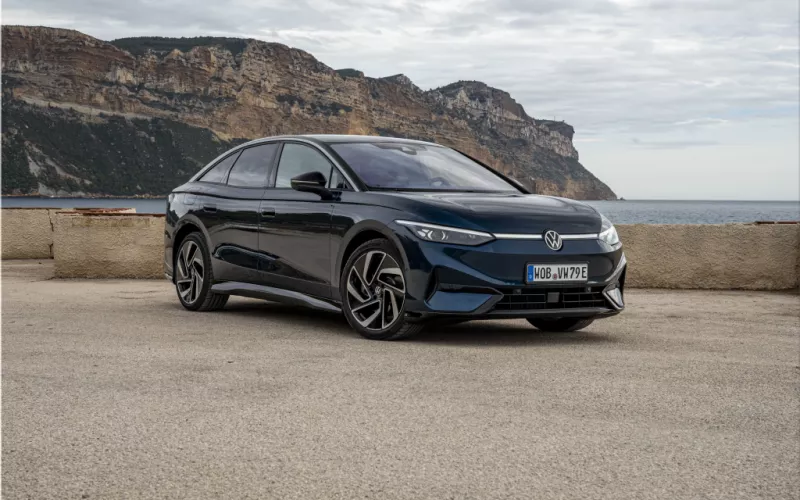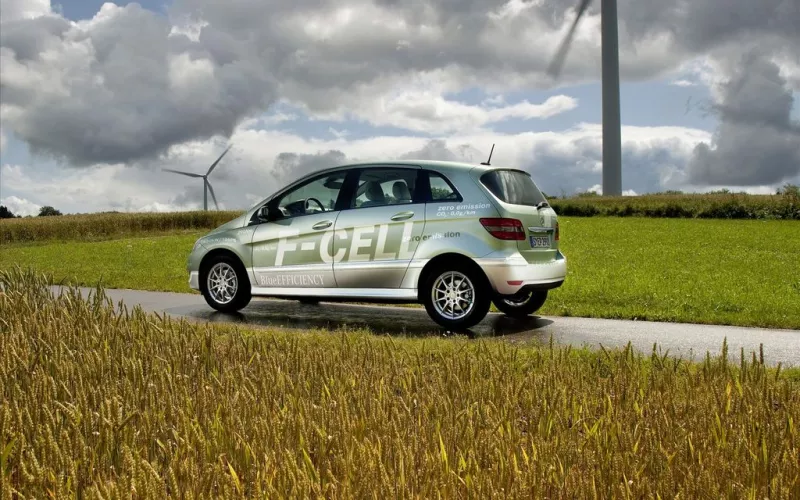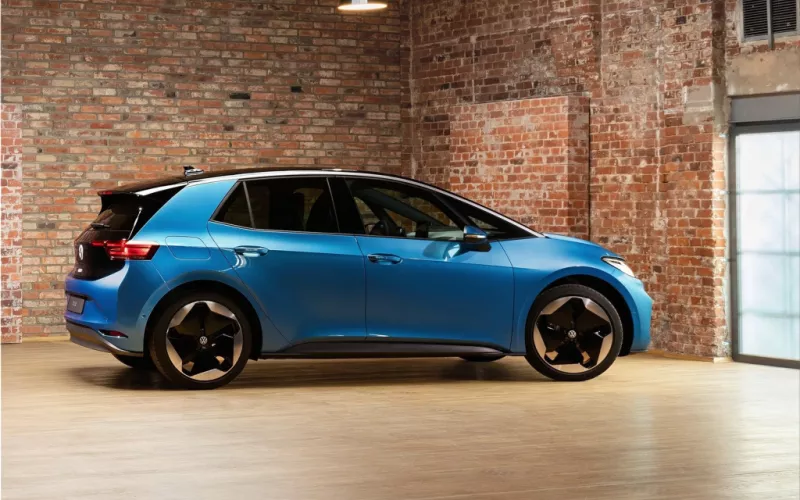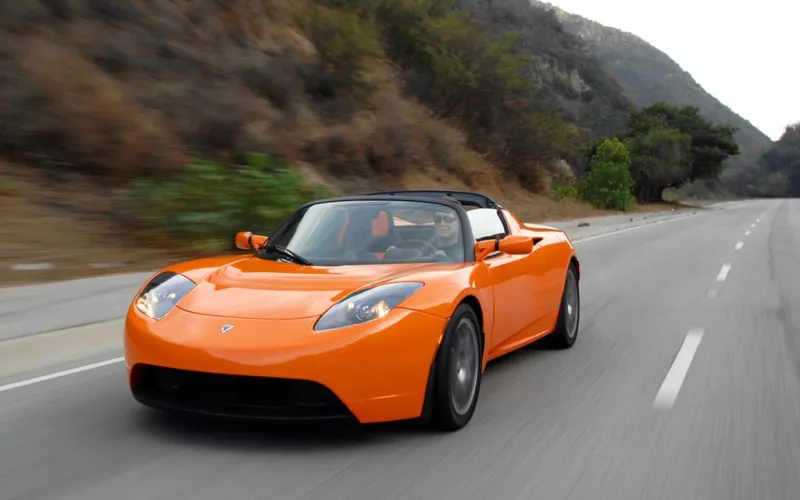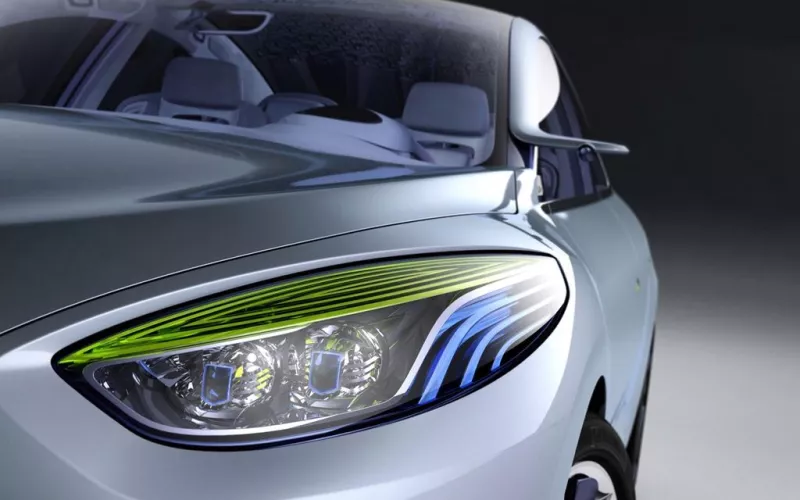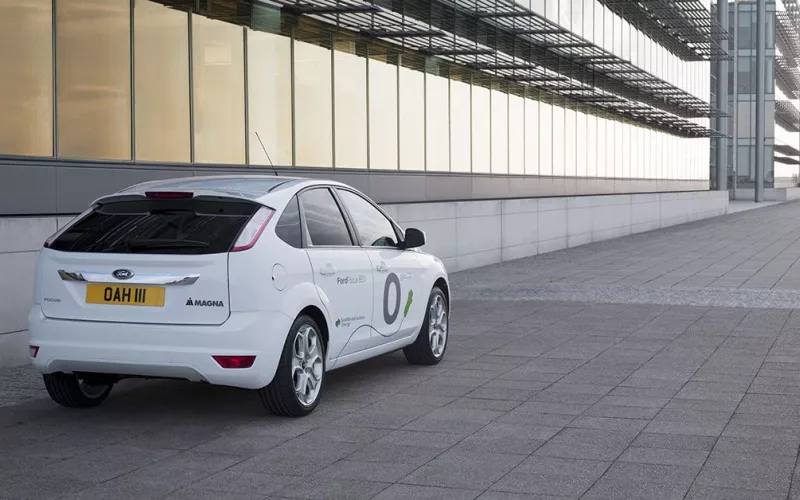At the Frankfurt Motor Show, Hyundai Motor Company unveiled its i10 Electric, a zero-emissions urban commuter vehicle which will see limited series production begin in 2010 starting with the Korean market.
With its low weight and advanced battery, the i10 Electric is capable of a driving range of 160km on a single charge, which is sufficient for most daily commuting needs. To arrive at a vehicle weight of 1000kg, x-by-wire systems have been developed to replace heavy hydraulic components, pulleys and drive belts that are commonly associated with conventional internal combustion engine cars.
Steering, for example, is performed by wire while an electrical vacuum pump provides braking power. Motor and battery cooling duties are now handled by an electric water pump while the air conditioning compressor is also an electric type.
The fundamental architecture of the i10 Electric focuses on a high efficiency 49kWh electrical motor and a 16kWh battery using innovative LiPoly (Lithium Ion Polymer) technology that offers numerous advantages over other battery types.
The i10 Electric car accommodates dual recharging cycles: a 220V household current which is slower but potentially advantageous if recharging is done during off-peak hours when utility rates are typically lower and 413V, an industrial strength current which promises quick recharging speeds. Under the quick cycle, the battery can be recharged to within 85 percent of its capacity within 15 minutes. Under the normal cycle using a 220V household current, 100 percent power will be attained within five hours of recharging.
The i10 Electric will incorporate advanced LiPoly batteries which are more durable and space-efficient than other batteries. Compared with nickel-metal hydride batteries (NiMH), LiPoly delivers the same power with 30 percent less weight, 40 percent less volume and 12 percent greater efficiency.
LiPoly batteries offer more than twice the energy density of NiMH batteries, and 175 percent greater volumetric energy density, meaning Hyundai engineers can devote less space and weight to the battery pack. LiPoly batteries also hold their charge 20 times longer. They also are more resistant to changes in temperature, which improves cycle life. Their self-discharge rate is less than a third of a NiMH battery.
LiPoly has significant advantages over lithium-ion (Li-Ion) technology, including higher energy density and lower manufacturing costs. LiPoly is more resistant to physical damage and can handle more charge-discharge cycles before storage capacity begins to degrade. LiPoly technology also offers significant advantages in thermal robustness and safety compared with typical Li-Ion batteries.
Additionally, Li-Poly delivers highly accurate state-of-charge information eliminating the guess-work and anxiety that are commonly associated with other battery types.
Another key difference between traditional Li-Ion batteries and Hyundai's LiPoly solution is the overall superiority of LiPoly packaging. The LiPoly battery pack is about 20 percent smaller than a Li-Ion battery pack, making it much easier to change the cell footprint to fit the nooks and crannies of available vehicle space.
Hyundai has spent tens of thousands of hours testing the LiPoly battery system. This testing has proven that Hyundai's LiPoly technology has greater thermal and mechanical stability than existing systems, meaning better safety. Thermal imaging testing shows LiPoly batteries run cooler compared to today's NiMH or Li-Ion batteries.

